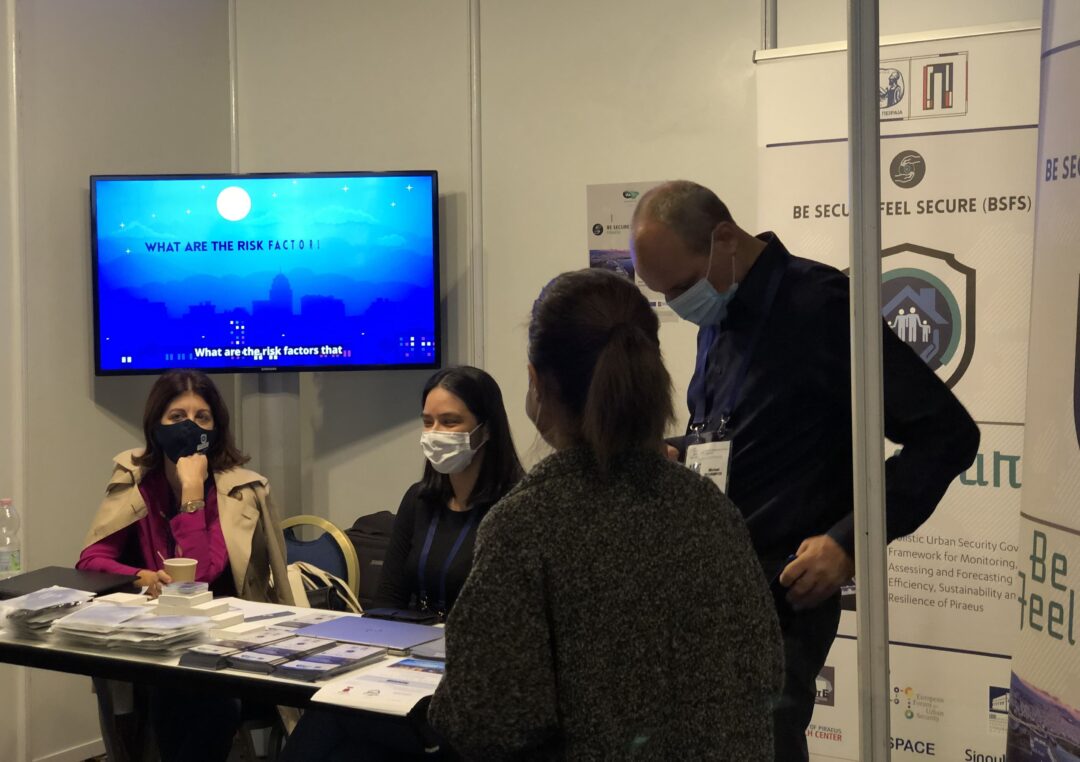Paris, France, December 2020 – The Efus-led IcARUS (Innovative AppRoaches to Urban Security) project held online its first coordination meeting on 17 December, gathering representatives from the consortium’s 17 partners, which include six European cities*, to discuss the project’s main objectives.
Innovative tools to respond to urban security challenges
Elizabeth Johnston, Efus Executive Director, emphasised the ambitious and challenging character of this project that aims to “provide our end users, the cities, with innovative tools to better respond to and anticipate urban security challenges. We will jointly work to create a common language, a common understanding of the objectives of our activities and of the Design Thinking methodology that will build the framework of this project,” she said.
She also emphasised that five of the partner cities are member of Efus’ Executive Committee*, which is keenly interested in the project. “We will regularly share the project’s progress and results with the Executive Committee, which will be a great opportunity to involve local policy makers.”
Using the latest social and technological innovations
The meeting was particularly focused on two of the project’s main objectives:
- to thoroughly reassess and improve the tools used in urban security in light of the latest social and technological innovation developments;
- to produce concrete guidelines to implement the Design Thinking methodology at all stages of the project.
Capitalising on the knowledge on urban security acquired over more than three decades, the project’s overall objective is to deliver a global strategy for an integrated approach to urban security based on broad, cross-sectoral local partnerships, and to equip European local and regional authorities with forward-thinking solutions in order to better understand and anticipate emerging security challenges.
Started in September 2020, IcARUS was designed by Efus based on its 30-year experience in local urban security strategies and practices. Led by Efus and funded by the EU’s Horizon 2020 research programme, it will last until August 2024.
* The project partners are: Cities of Lisbon (Portugal), Nice (France), Riga (Latvia), Rotterdam (Netherlands), Stuttgart (Germany) and Turin (Italy). The first five cities in this list are members of Efus’ Executive Committee.
Other partners: Erasmus University of Rotterdam (Netherlands), Eurocircle (France), Fondation de l’Institut de recherche IDIAP (Switzerland), Globaz, S.A. (Portugal), Kentro Meleton Asfaleias (Greece), Makesense (France), Panteion University (Greece), Plus Ethics (Spain), Salzburg University of Applied Sciences (Austria), University of Leeds (United Kingdom), University of Salford (United Kingdom)





